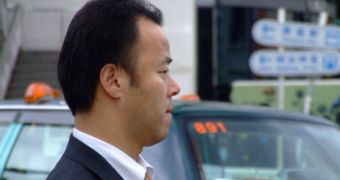Stress and overwork are shaping up to become two of the most pregnant issues in modern-day Japan, as literally thousands of workers, mostly in their mid 30s, die in the country yearly. Doctors warn that people working more than 50 to 70 hours per week expose themselves to higher risks of heart attacks, strokes, poor blood circulation, and other stress-reduced illnesses. People complain that they feel overworked every day and night, with jobs leaving them very little time for their personal lives.
"Employees work like crazy and the atmosphere is hectic, particularly in peak periods when everybody works late into the night," Sadako, a Tokyo art gallery employer, states and also adds that after work people usually go out and discuss the events over the course of the day, which means that they live under constant pressure most of the time. In addition, holidays are very short and, due to the economic downturn, off-days are very difficult to obtain.
According to Rengo, the main labor union federation in Japan, 53 percent of the people it has questioned during a new survey reported that they experienced higher levels of stress over the past months. "Neither the government, nor businesses offer figures that completely take stock of the problem," lawyer Hiroshi Kawahito, who made a habit of representing the relatives of karoshi victims, argues. Karoshi is the term used in Japan to describe people dead from overwork.
Regulations place the maximum amount of work hours per week at 40, but that seems more like a guideline in the current economical climate, as 25 percent of the total workforce labors for more than 50 hours weekly, and some 10 percent have more than 60 hours scheduled. Although some of these people work very hard for their company, it's not uncommon for the institution to fire them at the first sign of economic trouble, thus creating a feeling of uncertainty among the workers.
Furthermore, conflicts at work and the necessity of having to deal with irritable and severe bosses make people feel like they have no chance of succeeding in their careers, a view that very much differs from that of the average 1990s employee, who saw hard work as a way of getting out of poverty. Now, more than 2,200 people die in Japan every year, either by suicide on account of the poor work conditions, or because of heart failures and other issues associated with stress.

 14 DAY TRIAL //
14 DAY TRIAL //